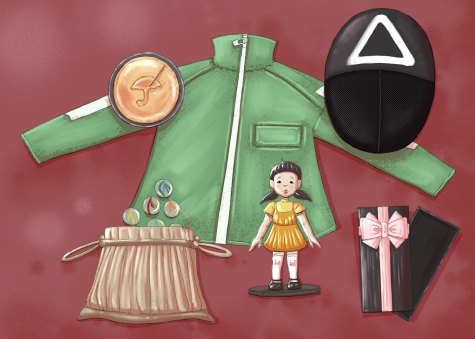Review: Viewers from around the world can relate to ‘Squid Game’ more than they might think
November 2, 2021

This article contains spoilers for the Netflix series “Squid Game.”
The games played in the new Korean television series, “Squid Game,” represent the innocence of childhood, struggles of adulthood and show just how far people are willing to go to earn money, even if it means murder.
“Squid Game” portrays a deadly competition between 456 participants, each playing games while betting on their survival. As reported by CNN Business, it became the first Korean show to reach number one in 94 countries, including the United States.
The show is written and directed by Hwang Dong-hyuk and follows the life of Seong Gi-hun, a man living in poverty who gambles and bets on horses to make a living and pay off his debt. He meets a man at the train station who offers to give him money by joining the “Squid Game” along with other contestants to compete for billions of won— the official currency of South Korea — and pay off their debt.
To viewers, the show may seem like adults playing children’s games at a huge expense, but the show is more relatable to real life than one may think.
The show takes a satirical look at an issue prevalent in Korea: debt. According to The Korean Economic Daily, at the end of July, the total Korean household debt hit a record high and was estimated to be between $1.53 trillion and $1.55 trillion in U.S. dollars.
Other than paying debts, some contestants are just there to make a better life for themselves and their families. The character Ali Abdul, a Pakistani migrant worker, entered the game after facing unsafe working conditions, where he lost multiple fingers and was denied pay for six months even though his boss had the money to do so.
“Squid Game” sheds a light on migrant workers in Korea, a group that is often underrepresented and underserved. In the show, Abdul moved to South Korea for work to provide a better life for his family.
“Squid Game” also puts an emphasis on the divide between the rich and the poor, symbolizing the backlash of capitalism.
In the second to last game, viewers find out who the VIPs behind the deadly games are: rich white men. In an interview with IndieWire, Dong-hyuk said former President Donald Trump resembles the VIPs. He said when Trump became president of the U.S., he felt like “Squid Game” was ready to be released into the world, describing Trump’s presidency as a game show, instead of political leadership.
Despite the inhumane rules of the game, the VIPs make jokes and bet on which players will lose, mirroring Gi-hun’s gambling addiction at the beginning of the show.
The show comes full circle at the end when Gi-hun wins the game. Now billions of won richer, he decides to try to end the games.
The show highlights the negative effects of capitalism and the need it creates for money, but ultimately, money is what endangered each character in the first place.
The ideas and morals in “Squid Game” relate to the real game of life, especially within the last decade.







